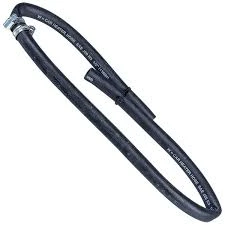black fuel hose
Jan . 02, 2025 07:43 Back to list
black fuel hose
Understanding the Importance of Black Fuel Hoses
In the world of automotive engineering and maintenance, certain components often go unnoticed despite their crucial roles in the efficient operation of vehicles. One such component is the black fuel hose, a vital element in the fuel delivery system. This article will delve into the significance of black fuel hoses, their composition, maintenance, and common issues associated with them.
What Are Black Fuel Hoses?
Black fuel hoses are specifically designed tubes that transport fuel from the tank to the engine. Their black color often signifies resistance to various elements such as UV light, making them adaptable for use in different environments. Typically made from a combination of rubber and other synthetic materials, these hoses are engineered to withstand the harsh conditions found within an automotive fuel system, including exposure to hot liquids and vapors.
Composition and Construction
The construction of black fuel hoses is crucial to their performance. Most modern fuel hoses incorporate a blend of materials that provide flexibility, strength, and chemical resistance. While traditional hoses may use only rubber, contemporary options often include additives and reinforcements, such as textile or nylon braiding, to enhance their durability.
Moreover, the inner lining of fuel hoses is designed to prevent fuel permeation – a process where fuel molecules escape through the hose material, leading to inefficiency and potential environmental hazards. The outer layer is engineered to endure abrasion and resist deterioration from exposure to heat, oil, and various chemicals found in the fuel system.
Importance of Maintenance
black fuel hose

Just like any other component of a vehicle, black fuel hoses require regular maintenance to ensure optimal performance and safety. Over time, hoses can become brittle due to age, exposure to high temperatures, or degrading chemicals. Regularly inspecting these hoses for signs of wear, such as cracks, leaks, or bulges, is essential for preventing catastrophic failures.
In addition to visual inspections, mechanics often recommend replacing fuel hoses every few years, particularly if the vehicle is older or subjected to harsh operating conditions. Adhering to the manufacturer’s specifications regarding replacement intervals can significantly enhance the longevity of the vehicle's fuel system.
Common Issues
Despite their durability, black fuel hoses are not immune to problems. One frequent issue is leaking, which can result from deterioration of the hose material or improper installation. A leaking fuel hose can lead to fuel spills, which poses fire hazards and environmental concerns.
Another common problem is kinking, which can restrict fuel flow and lead to engine performance issues. Kinks may occur if hoses are not installed correctly or if they are subjected to excessive movement or pressure. It’s crucial to ensure that hoses are routed properly and that they have enough slack to accommodate engine movement without becoming pinched.
Conclusion
In conclusion, black fuel hoses are an essential component of any vehicle's fuel system, playing a significant role in ensuring efficient fuel delivery to the engine. Their robust construction, made to withstand challenging conditions, allows vehicles to perform optimally. Regular inspection and maintenance of these hoses are imperative to prevent potential failures and maintain vehicle safety. As drivers, being aware of the importance of such components can lead to better vehicle care and prolong the lifespan of our vehicles. Whether you’re a car enthusiast or an everyday driver, taking the time to understand and prioritize the health of your black fuel hoses can make all the difference in your vehicle's performance and reliability.
